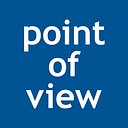Doing the Right Thing: Creating a Ripple Effect — William “Bill” Jones
The Ethics Study 2023, a bi-annual global research report on global leaders’ perspectives on organizational ethics, finds 96 percent of leaders are “overwhelmingly convinced” that addressing ethical issues is critical to the future of their industries. Yet less than half of major companies say they are equipped to deal with critical ethical challenges.
We asked Bill Jones, a former bank executive and current board member who is known for his unwavering ethics, what ethics mean to him and how company leadership can best embrace the ethical imperative.
Bill, when we asked people to describe you, a recurring theme was “ethical.” We’ve talked about ethics in business, and in life overall, and how sometimes ethics “lose out” to other priorities. Why are ethics so important?
Ethics are what define our morals, values, and the life principles to which we’re held accountable. In all situations, they should be unwavering. It’s not like you get to the fork in the road and say, “We can go this way, or we can go that way.” You get to the fork in the road and you say, “We need to go the way that’s right.”
My personal ethical framework ties back to my mom and how she lived her life as a highly principled person, regardless of the difficulties life threw her way. She always taught us, if you just speak the truth, you never need to remember what you said.
What do you really stand for when nobody else is in the room? Ethics guide us to make the right choices and create positive impacts through our choices, on our own and with each other.
Can you tell us about an ethical dilemma you faced in your time in the banking industry? How did your ethical structure help you make a critical decision?
As a CEO early in my career, I discovered an influential director on the bank’s board had falsified some personal financial information for a loan. When I confronted him, he admitted he had done this. I brought the situation to the attention of the board’s executive committee. We ended up dismissing this director from the board.
While the bank didn’t incur a loss, it could have. Had we not taken action and had the incident gone public, the bank’s reputation would have taken a major hit. The two most important responsibilities of a board director are to fulfill a duty of loyalty and a duty of care to shareholders. This director’s behavior was unquestionably a violation of duty of care, and on that principle alone, the way forward was clear.
How do boards reinforce to shareholders or stakeholders that they’re abiding by an ethical framework?
Ethics are built into good corporate governance. All reputable companies have a code of ethics — a living document that everyone in the organization adheres to. Employees look to that code as their safe place and to their company leaders to live by it.
Corporate leaders need to be role models for ethical behavior in the choices they make and the respect they show for one another. They also need to call out unethical behavior when they see it. It’s one thing to recognize when something’s wrong and not participate in it — and another to stand up and be on record against it. When it comes to ethical decision-making, it’s all about three words: consistent, predictable, and repeatable.
I was fortunate to work for many years for a company esteemed for its ethical practices, U.S. Bank. It has received the highest rankings by Ethisphere, the group that honors superior “corporate character.” My time at the bank set a high bar for expectations of corporate honesty and integrity. When everyone’s standing on the same ethical foundation, decision-making is a lot easier.
Is our society losing its ethical backbone? If so, how can we find our way back?
It all starts with assuming personal responsibility — and understanding how our individual actions contribute to our shared direction.
I’m reminded of the story of the boy who was spotted throwing back into the sea a starfish that had washed ashore. A passerby asked the boy what he was doing. The boy replied, “The sun is up and the tide is going out. If I don’t throw them in, they will die.” Noting how many starfish were cast throughout the beach, the passerby said, “You can’t possibly make a difference.” The boy threw another starfish into the sea, and as it met the water, he said, “It made a difference for that one.”
That’s what we need to remember. Just one small act of doing the right thing does indeed make a difference. And who knows what the ripple effect will be?
We appreciate your illuminating insights, Bill.
Independent board director and business leader Bill Jones is an inspired idea creator and positive change maker. A former public company CEO and CFO, he has been serving on multiple boards in diverse industries, from banking and health care to utility and broadcasting. Bill is known for his financial expertise, transformational approach, and distinct ability to build authentic relationships.
Connect with me on LinkedIn
